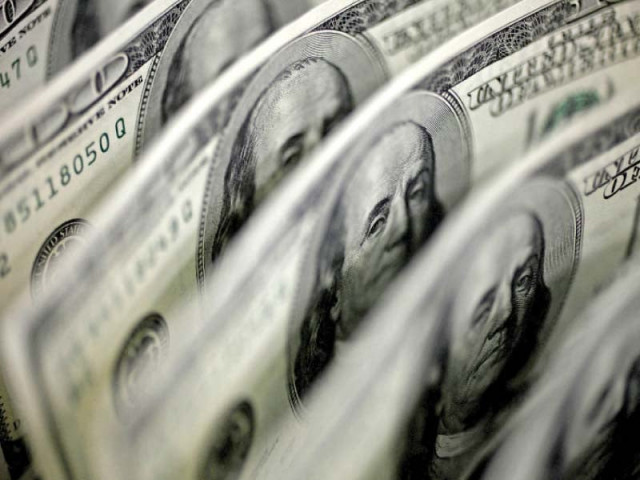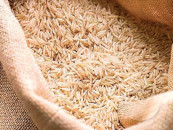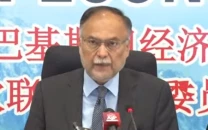Another $1b due next week
Junk credit ratings pointing to default risk restrained lenders from commitments

Pakistan is set to make debt repayments of over $1 billion to two foreign commercial banks early next month, amid the government’s hard struggle to avoid sovereign default with very little gross foreign exchange reserves left behind.
Sources in the Ministry of Finance told The Express Tribune that the government will return two loans to the Gulf banks in the first week of January. These loans had been secured for a period of one year in the hope that the lenders will further extend repayment at the time of maturity. Junk credit ratings pointing out high risk of default, however, restrained foreign lenders from keeping their commitments to Pakistan.
Two separate repayments of $600 million and $415 million will be made to two Dubai-based commercial banks. Until fresh loans are secured, these repayments are expected to make a major dent in the already precarious foreign exchange reserves – currently standing at around $6 billion. The Ministry of Finance did not comment on this article.
Pakistan’s economic woes have aggravated after the International Monetary Fund (IMF) did not confirm a tentatively planned mission visit for October 26th. The risks of default have increased and former finance minister Miftah Ismail has been repeatedly saying that the country may default in the absence of the IMF programme.
Finance Minister Ishaq Dar, however, vehemently suggested on Wednesday that Pakistan “will not default” on its international payments, as the government has managed to arrange the $31-32 billion required for the ongoing fiscal year 2023.
The finance minister’s statement, however, did not calm jittery investors, with the stock market dipping by another 524 points despite Dar’s early morning speech. The rupee kept shedding its value and closed over Rs226.37 to a dollar on Wednesday – a figure that has become symbolic as the dollar is not available at this rate in the open market.
The difference between the interbank rate and the black-market rate has become as wide as Rs25 to Rs30 per dollar.
Details seen by The Express Tribune suggest that the $32 billion plan was too optimistic to materialise in the absence of the IMF umbrella. The government still believes it can raise $1.5 billion by floating Eurobonds and has made it part of the external financing plan. Another net $300 million are projected on account of Naya Pakistan Certificates (NPC).
As against the budgeted over $7 billion foreign commercial loans, the Ministry of Finance still sees $6.3 billion materialising in the current fiscal year, a figure that also appears highly optimistic. The government is pinning its hopes on China rolling-over its foreign commercial loans worth $3.5 billion and non-Chinese banks not taking back their loans worth $1.3 billion. The finance ministry says that a $700 million Chinese commercial loan will arrive soon, which Islamabad had returned earlier.
So far, however, both the Chinese and non-Chinese commercial banks have stayed away from extending their loans due to the adverse impact of Pakistan’s junk credit rating on their overall balance sheets.
The government expects that it will be able to get fresh foreign commercial loans worth $1.5 billion in the current fiscal year, an assessment that may not be true without the IMF programme’s revival. Foreign commercial banks are now demanding an interest rate much higher than 10%, which the government cannot politically afford.
The loans that Pakistan is returning next week had been obtained at the London Bank’s offered rate plus 2 to 2.2%. Even at today’s Libor rate the total cost will be over 6%, almost half of what the banks are now demanding, according to the sources.
In the last meeting, IMF’s Mission Chief to Pakistan, Nathan Porter asked Islamabad to let the rupee gain its real value – a demand seemingly contrary to the government’s policies.
The government’s priorities also seem misplaced as it focuses on putting an end to currency being smuggled instead of addressing the root causes leading to the smuggling in the first place. According to a press statement issued by the PM’s Office, Prime Minister Shehbaz Sharif, on Wednesday, chaired a meeting to control smuggling and enhance FBR’s revenue collection through means of enforcement.
The government expects that it will be able to get the $7 billion loan rolled-over by China and Saudi Arabia, a projection that is accurate. Saudi Arabia has already rolled over $3 billion, while Pakistan has requested China to rollover the $4 billion maturing in this fiscal year.
The finance ministry hopes to receive $11 billion from the multilateral creditors, but its materialisation depends upon the revival of the IMF programme. So far, the Asian Development Bank has been helping Pakistan in a major way, but the World Bank is looking towards the IMF.



















COMMENTS
Comments are moderated and generally will be posted if they are on-topic and not abusive.
For more information, please see our Comments FAQ